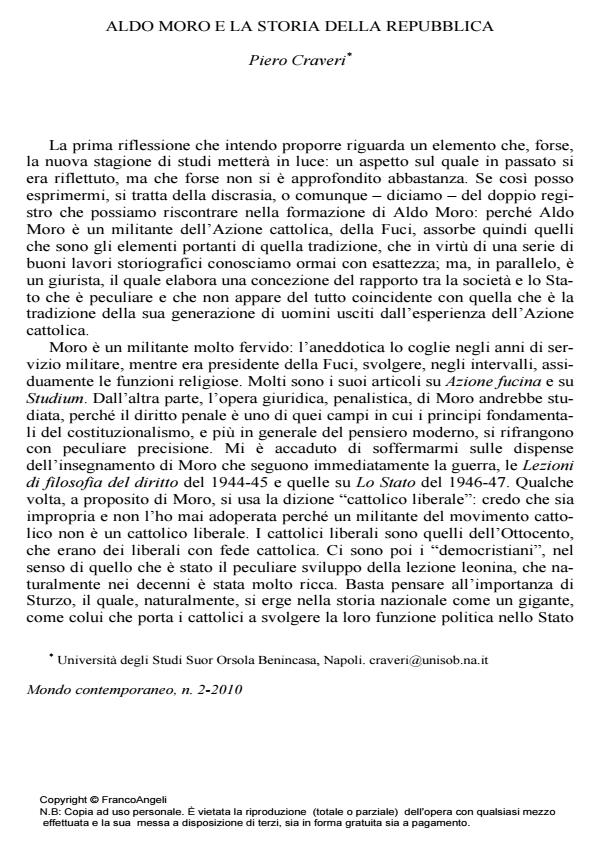Aldo Moro and the History of the Republic
Journal title MONDO CONTEMPORANEO
Author/s Piero Craveri
Publishing Year 2010 Issue 2010/2
Language Italian Pages 8 P. 9-16 File size 323 KB
DOI 10.3280/MON2010-002002
DOI is like a bar code for intellectual property: to have more infomation
click here
Below, you can see the article first page
If you want to buy this article in PDF format, you can do it, following the instructions to buy download credits

FrancoAngeli is member of Publishers International Linking Association, Inc (PILA), a not-for-profit association which run the CrossRef service enabling links to and from online scholarly content.
The author outlines a distinctive feature of Moro’s education: the rift between the Catholic associations’ militant and the jurist with a culture influenced by Gentile’s and Croce’s historicism. This culture explains why Moro was very far from Sturzo’s tradition but ready to consider it deeply anew and why he came into conflict with the "ex-popolare" group but was not homogeneous with "dossettismo" either. Since 1959, as a Secretary of the Christian Democratic Party, Moro tackled through this culture the problem of giving a "Christian" meaning to a party by then on the road to secularization. Following a view very far from Fanfani’s one and not so distant from De Gasperi’s, Moro saw as the Christian Party’s mission the building of a system of alliances capable of supporting the development of the country by means of a continuous political intermediation devoted to bridge the rifts in Italian society. His heritage remains dramatically unaccomplished, but it is important to re-examine it in a historical perspective, considering the many new rifts Italian recent history added.
Keywords: Aldo Moro, Republican Italy, History of Italy after 1945, Center-Left, Dc, Pci
Piero Craveri, Aldo Moro e la storia della Repubblica in "MONDO CONTEMPORANEO" 2/2010, pp 9-16, DOI: 10.3280/MON2010-002002